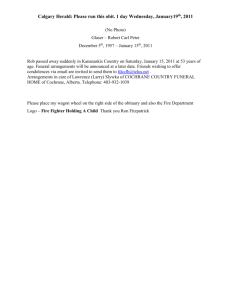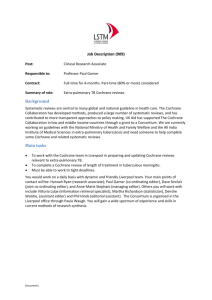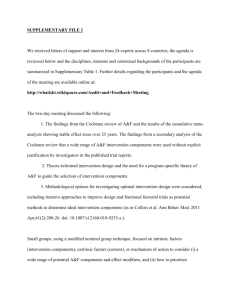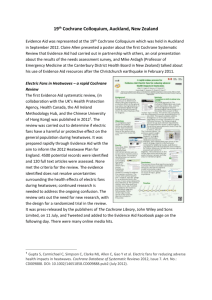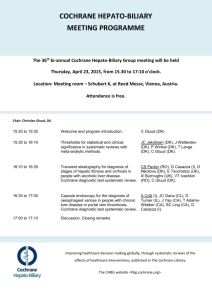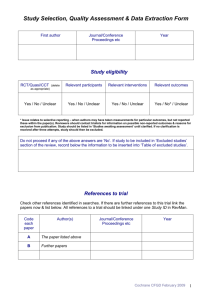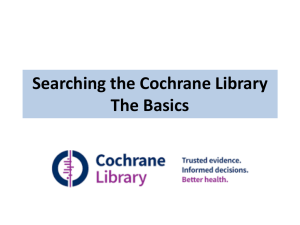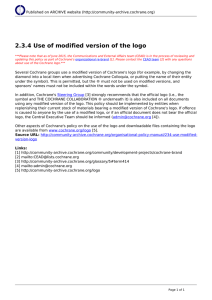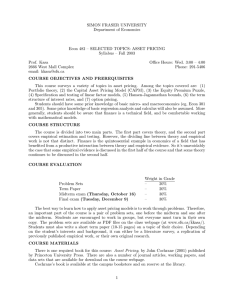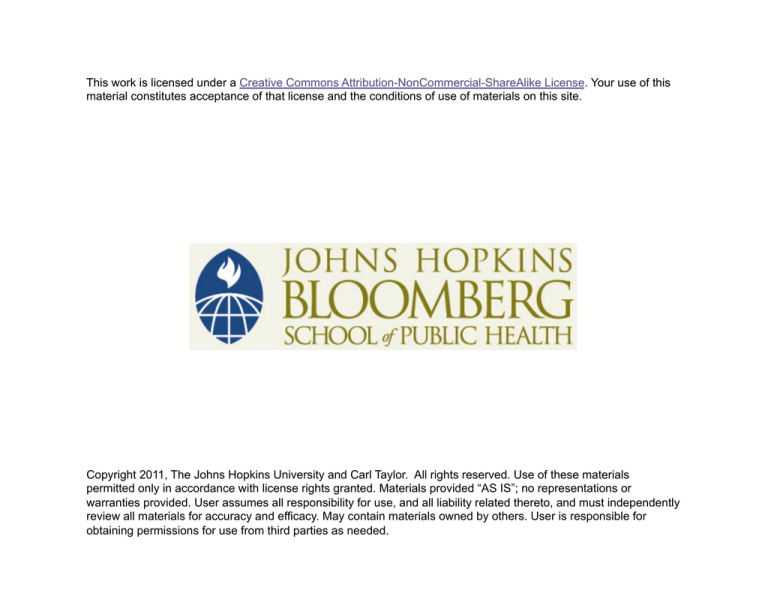
This work is licensed under a Creative Commons Attribution-NonCommercial-ShareAlike License. Your use of this
material constitutes acceptance of that license and the conditions of use of materials on this site.
Copyright 2011, The Johns Hopkins University and Carl Taylor. All rights reserved. Use of these materials
permitted only in accordance with license rights granted. Materials provided “AS IS”; no representations or
warranties provided. User assumes all responsibility for use, and all liability related thereto, and must independently
review all materials for accuracy and efficacy. May contain materials owned by others. User is responsible for
obtaining permissions for use from third parties as needed.
Section D: Narangwal Revisited
Carl E. Taylor, MD, MPH, DrPH
Johns Hopkins University
An Introduction to this Section, by Henry Taylor
Narangwal was foundational in Carl’s personal development and was
the primary research project for the International Health
Department
Illustrates what can happen to a field demonstrational project many
years later
It led to a lot of research and projects around the world
In the summer of 2006, a series of events occurred in a few months
- Here’s Carl with what happened next …
40 Years after the Narangwal Trials Began …
There was not much mention of it
The researchers had benefited from exploring new methods
Following the Alma Ata conference in 1978, there was a debate
about community ownership of health efforts versus a more topdown program implementation
Cochrane Reviews
The Cochrane reviews examined the integration of vertical
interventions for primary health care
They rejected the Narangwal research for inclusion in the review
They were examining again the core issue of the Narangwal study—
which was the integration of vertical top-down interventions
Process for Responding
Three of the original team met in Baltimore
Communicated with other team members now all over the world
The team re-examined the books and publications that had resulted
from Narangwal
The Cochrane reviews were rejected based on the last published
study
Indian Journal of Medical Ethics
A series of articles discussed a hypothetical case study (based upon
Narangwal) of a community-based nutrition study
Concern was that the study did not meet current ethical standards
It was believed that it represented exploitation of the villagers
Assignment
Please read:
- The Cochrane review of: Strategies for integrating primary
health services in middle- and low-income countries at the
point of delivery. (Briggs and Garner, 2006)
Also read:
- The Indian Journal of Medical Ethics case study and responses.
(Cash, 2007; Kutty, 2007; Mala and Amar, 2007; Ravindran,
2007; Shatrugna, 2007)
Make postings of two to three paragraphs each in the appropriate
online discussion forum addressing the questions on the next slide
Questions to Discuss on the Bulletin Board
Question 1
- The Cochrane review referred only to the single 1987 published
paper in Social Science and Medicine; that paper had many
references which were obviously not read by the reviewers
- Read the Cochrane review documents carefully to identify not
only the criteria for inclusion in the review but also their
reasons for rejecting the paper after three separate reviews
- What do you think were the real reasons for rejecting the
Narangwal project?
Questions to Discuss on the Bulletin Board
Question 2
- For the review in the Indian Journal of Medical Ethics, please
comment on your impression of why the reviewers were so
negative about the Narangwal nutrition project
- (http://www.ijme.in/issue152.html)
Give us your frank opinion about what kind of thinking is going on in
a developing country such as India about international research

